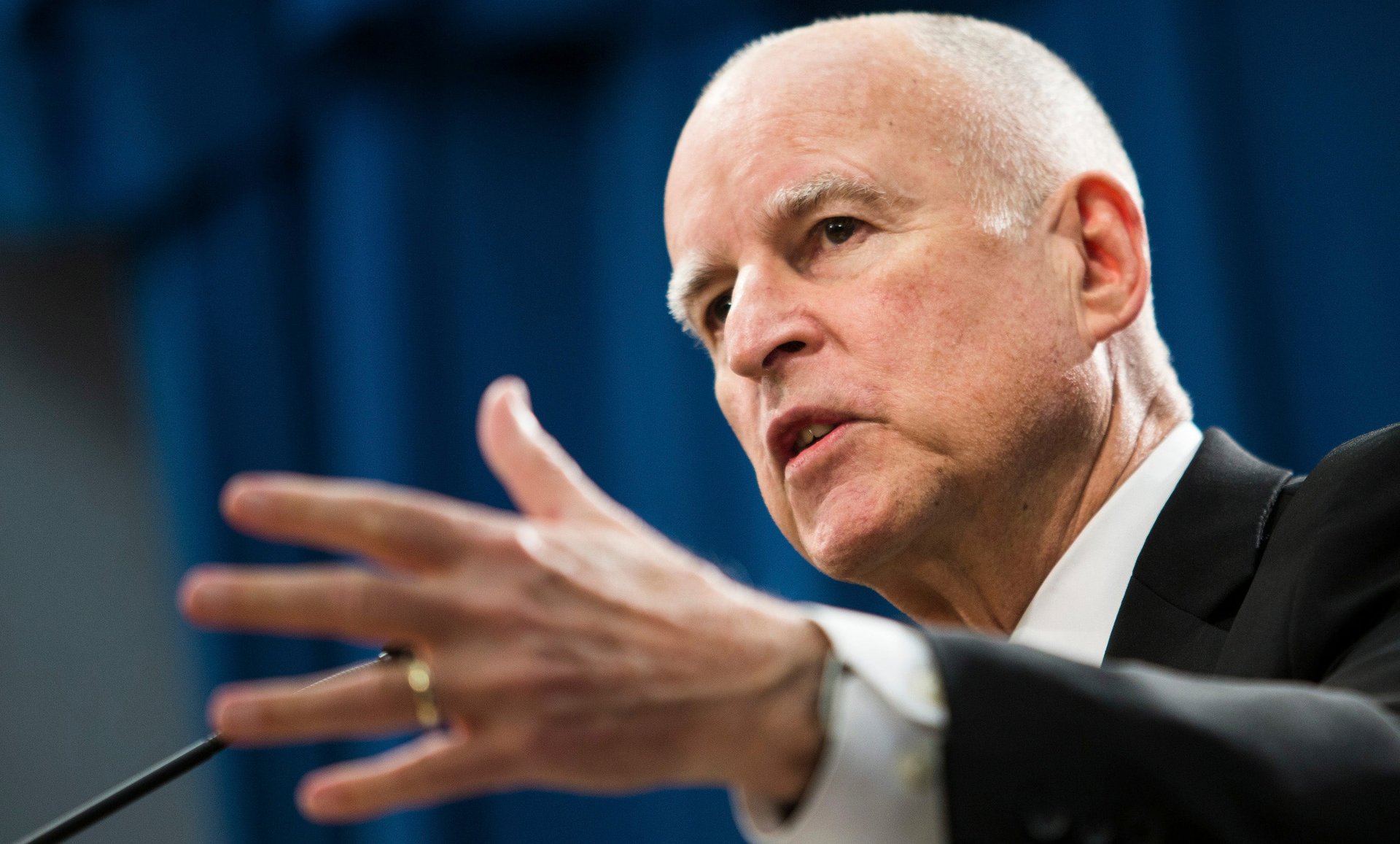Read California governor Jerry Brown’s moving letter in support of assisted dying
Joining Oregon, Washington, Vermont, and Montana, California is now the fifth US state to allow assisted suicide.


Joining Oregon, Washington, Vermont, and Montana, California is now the fifth US state to allow assisted suicide.
California governor Jerry Brown today (Oct. 5) signed a controversial measure allowing physicians to prescribe lethal drugs for mentally competent, terminally ill patients who face a life expectancy of less than six months and request a doctor’s help to end their lives. The law, which is modeled after Oregon’s, ends a long political and emotional clash between doctors, religious leaders, ethicists, and politicians in the state.
In a letter to the California State Assembly, Brown succinctly explained his controversial decision:
To the Members of the California State Assembly:
ABx2 15 is not an ordinary bill because it deals with life and death. The crux of the matter is whether the State of California should continue to make it a crime for a dying person to end his life, no matter how great his pain or suffering.
I have carefully read the thoughtful opposition materials presented by a number of doctors, religious leaders and those who champion disability rights. I have considered the theological and religious perspectives that any deliberate shortening of one’s life is sinful.
I have also read the letters of those who support the bill, including heartfelt pleas from Brittany Maynard’s family and Archbishop Desmond Tutu. In addition, I have discussed this matter with a Catholic Bishop, two of my own doctors and former classmates and friends who take varied, contradictory and nuanced positions.
In the end, I was left to reflect on what I would want in the face of my own death.
I do not know what I would do if I were dying in prolonged and excruciating pain. I am certain, however, that it would be a comfort to be able to consider the options afforded by this bill. And I wouldn’t deny that right to others.
Sincerely,Edmund G. Brown, Jr.
Brown, a former Jesuit seminary student who at one time had studied to enter the priesthood, faced a “gut-wrenching” moral conflict over the decision to sign the bill, the Los Angeles Times notes. While the California State Legislature approved the bill last month, it was Brown’s job to make the final call on a policy that will affect patients all across the state—and is likely to resonate widely across the rest of the country.